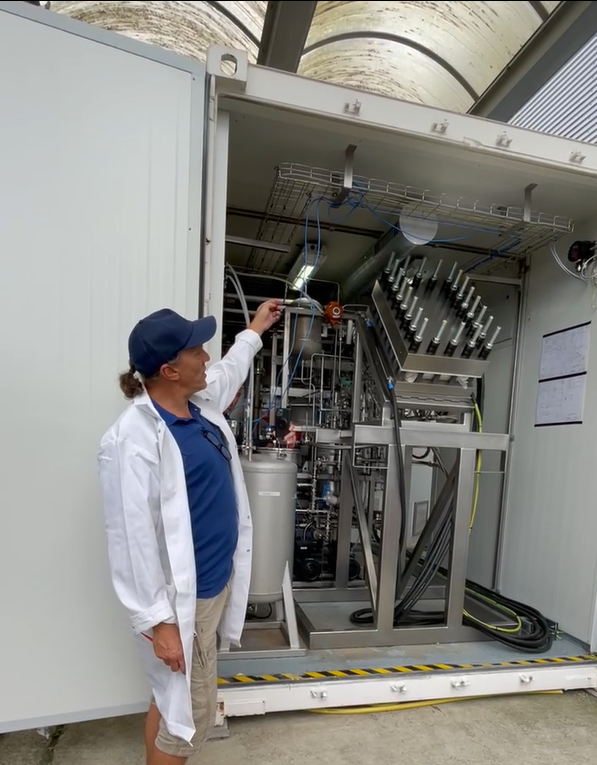An EU-funded initiative is accelerating the deployment of carbon capture and utilisation (CCU) technologies, which convert carbon dioxide emissions into valuable products including synthetic fuels, chemicals, and construction materials.

CCU relies on capturing CO₂ and repurposing it—for instance, by combining it with renewable hydrogen to produce electro-fuels (e-fuels). The ECO2Fuel project is at the forefront of this effort, developing a 1MW low-temperature electrolyzer that uses renewable electricity and water to directly transform captured CO₂ into sustainable liquid fuels.
By demonstrating the technology at an industrial scale, the project aims to provide a viable pathway to decarbonize some of Europe’s most emission-intensive sectors.
Last year, ECO2Fuel successfully developed a 50kW stack integrated into the electrolyzer system. The system operates at elevated pressures, incorporates continuous gas monitoring, and recycles the cathodic gas mixture to enhance CO₂ conversion rates.
A central goal of the project is to scale the system up to 1MW by 2026. To achieve this, the team designed a cell with an active area of 1,500 cm²—larger than most current pressurized CO₂ electrolysis stacks. The 50kW stack comprises 25 such cells, totaling 3.75m² of active area, matching the state-of-the-art in proton exchange membrane (PEM) water electrolysis.
Key scaling challenges already addressed include high-pressure sealing, management of gas and liquid flows, and structural integrity of stack components.
The project brings together a consortium of industry and research leaders including Deutsches Zentrum für Luft- und Raumfahrt (DLR), RWE, Bekaert, De Nora, HyGear, ARIEMA, Energía y Medioambiente S.L., Monolithos Ltd., HYDROLITE, Think11, META Group, Centro Ricerche Fiat, DTU, Universitat Politècnica de València, Consiglio Nazionale delle Ricerche, and VITO.
RWE, which leads on-site demonstration activities, has successfully tested a novel backup power system using e-fuels. A stationary engine with an electrical output of 200kW was operated, with its exhaust gases directed to a carbon capture unit that uses an amine-based process to capture CO₂ at a rate of 7.2 tonnes per day and 90% capture efficiency. Recently, capture rates reached 99.8%, resulting in off-gas with lower CO₂ concentration than ambient air.
The captured CO₂ serves as feedstock for the upcoming 1MW ECO2Fuel demonstrator, which will produce carbon-based e-fuels. These can be reused in the engine, effectively “closing the carbon loop” by continually recycling carbon instead of emitting it.
Each cycle replaces fossil carbon with recycled CO₂, avoiding further fossil emissions. The project is also evaluating the reuse of high-temperature exhaust heat to improve overall energy efficiency.
RWE has conducted tests at its Innovation Centre in Niederaussem, Germany, examining the impact of elevated oxygen and nitrogen oxides (NOx) in the exhaust on the capture process—including energy consumption, solvent regeneration, emissions, and solvent degradation.
In a recent discussion with ECO2Fuel, Tudy Bernier, Policy Director at CO₂ Value Europe, emphasized the strategic importance of CCU within the European Green Deal: “CCU won’t be the only solution, but it will certainly be one of them—especially in hard-to-abate sectors like aviation, shipping, and heavy industry. In cases where electrification is technically complex or economically challenging in the short term, drop-in CCU fuels offer a practical alternative to fossil options.”


